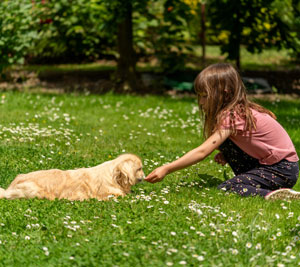
Childhood Memories
When I was a kid, every time we saw a dog on the side of the road, my mom would shout, “Look, boys! A stray!”
Before we knew it, she’d hit the brakes, throw our old ’69 VW into reverse, and with the tires squealing, she was off on another rescue mission—fast and focused, like a pelican diving for a fish.
One of my brothers would always groan, “Mommm, Dad’s going to kill you!” But she didn’t care. Her heart was set on saving the dogs no one else noticed.
Growing up in New Mexico, I learned early about both abandonment and love—especially love for animals. Every time I watched my mom gently wrap her hands around the neck of some scruffy Shepherd-Chow mix and receive a flurry of grateful, slobbery kisses in return, that love grew even stronger.
Dogs seemed drawn to my mom, like shoppers racing to a holiday sale. Our home was never without a few furry guests—strays that she took in without hesitation. Both people and dogs are pack animals, and in our pack, my mom was the quiet, steady leader. All it took was one calm look from her, and everyone—two-legged or four—knew who was in charge.
Why My Childhood Dogs Were So Well-Behaved
What’s truly fascinating is that—even without any formal training—none of the dogs I grew up with had behavior issues. They didn’t poop in the house, bite, chew on things they shouldn’t, or ignore commands. They simply listened. Why? Because they saw my mom as the leader of the pack, and everything else just fell into place.
Over time, I’ve realized that country dogs often behave differently than city dogs. They get out, explore, and live like dogs. They chase rabbits, swim in rivers, and visit other dogs down the road. At the end of the day, they’re tired—and a tired dog is usually a well-behaved dog.
In contrast, many city dogs struggle with boredom and lack of proper socialization. Even a big backyard can become dull pretty quickly—like flipping through the classified section of an old newspaper. Dogs need stimulation. Walks and new smells are their version of reading the Sunday paper. It’s how they stay mentally healthy and socially connected.
The Truth About Dogs Left at Home
Many dog owners think their pets entertain themselves while home alone. The truth? They don’t. Most dogs either sleep (if you’re lucky) or find something to chew (if you’re not—like your favorite slippers). Dogs aren’t watching TV, scrolling social media, or having deep conversations with the cat. They’re waiting for you.
Instead of blaming your dog for destructive behavior, try waking up just 15 minutes earlier for a morning walk. It gives your dog a chance to “catch up on the news” via all the new smells—and helps you get some fresh air (and maybe shed a few pounds!).
Small Dogs, Big Attitudes
My mom loved all dogs, but she wasn’t a big fan of small, fancy breeds that bark non-stop and seem high-maintenance—think Maltese, Yorkies, Poodles, and Chihuahuas. Some of these little guys do have a bad reputation. Why? Often, it’s not their fault—it’s about how they’re raised.
We tend to overprotect tiny dogs. When a big dog comes near, we scoop up our little pup and cross the street. This tells the small dog that big dogs are scary—and that fear can turn into aggression. What starts as nervous barking can turn into snapping or biting.
Instead, small dogs need to be around larger dogs. They need to sniff, play, and learn that size doesn’t equal danger. Think of it like helping your dog become a confident social butterfly instead of a nervous wallflower.
Life Lessons (and a Little Bit of Fun)
Of course, my memories aren’t just about rescuing dogs. I also learned to make a martini at age 10, went to Catholic boarding school (and survived), spent some wild years in Roswell, New Mexico during the trippy ‘70s, and eventually landed in Los Angeles. Life’s taken me all over the world, and I’ve learned a lot.
That’s exactly what I want for your dog: experience and confidence.
To raise a happy, well-adjusted dog, follow the path of Obedience, Socialization, Exercise, and Nutrition—or as I like to call it, the NOSE approach. When you focus on these four things, you’ll raise a dog who isn’t just “that crazy pup,” but a trusted, happy companion for life.
Zack Grey, founder of The Urban Pet, is a veterinarian-recommended professional dog trainer specializing in obedience and behavior. Respected in his native Hollywood as a motivational trainer with a dynamic personality, Zack possesses that unique quality – to be able to effectively communicate with both owners and dogs. He has brought peace of mind to scores of frustrated pet owners that even in the worst behavioral scenario there exists hope, help and humor.
